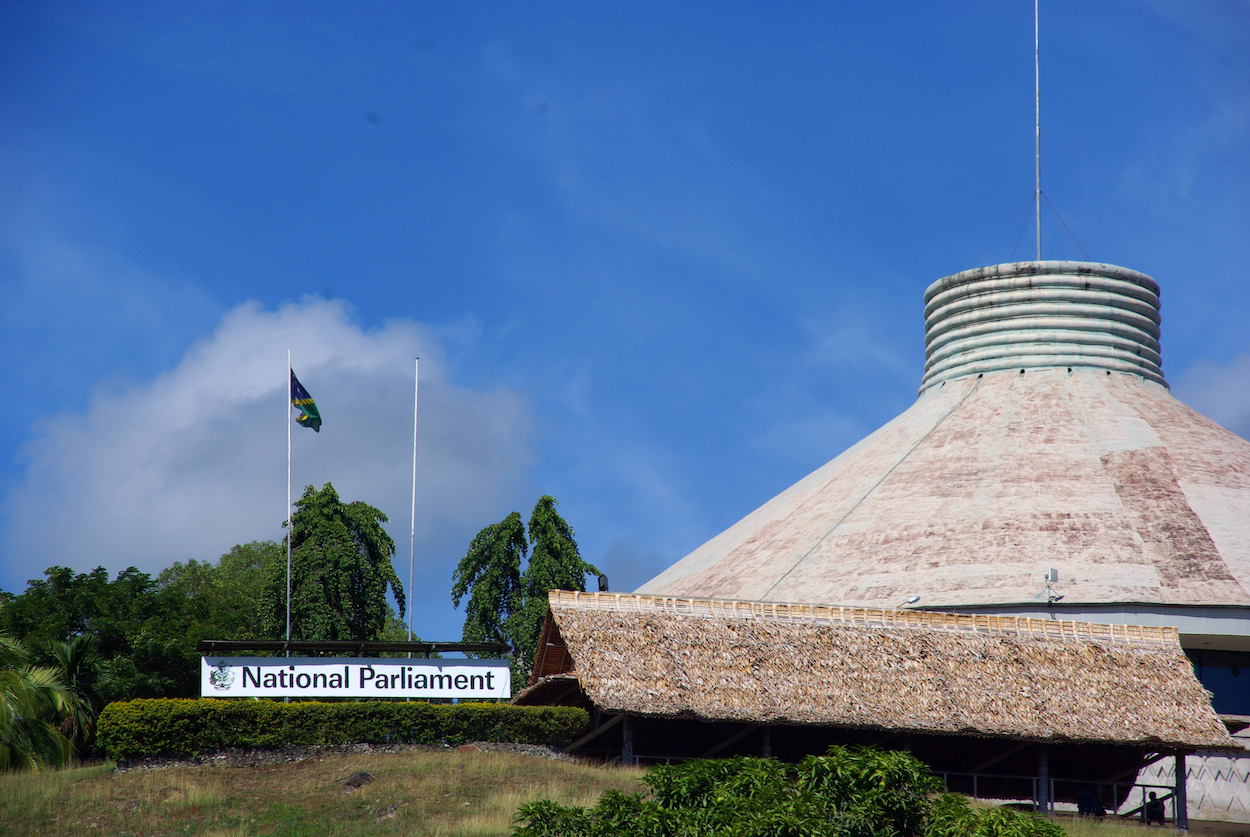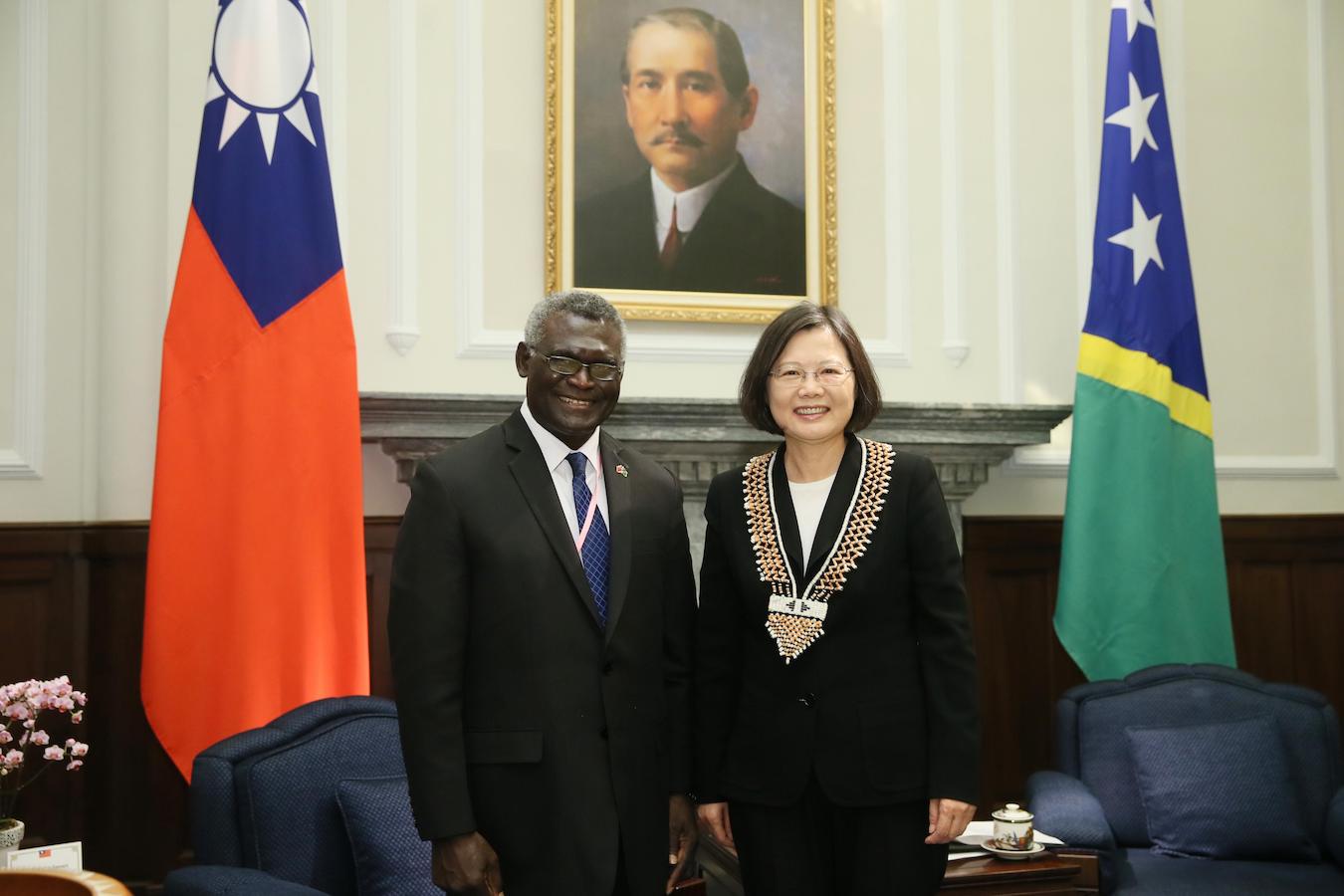by Brian Hioe
語言:
English
Photo Credit: Kahunapule Michael Johnson/WikiCommons/CC
THERE HAS BEEN a wave of condemnation from western countries after the Solomon Islands signed a security agreement with the Chinese government. In particular, some take the view that the security agreement raises the likelihood of conflict in the Asia Pacific.
The agreement was signed under the government of prime minister Manasseh Sogavare, who has steered the Solomon Islands closer into alignment with China. Under Sogavare, the government of the Solomon Islands broke diplomatic relations with Taiwan in order to establish relations with China.
Specifically, the agreement would allow China to send police, armed forces, and other personnel to the Solomon Islands to maintain order. Likewise, the agreement would allow China to resupply its warships in the Solomon Islands.
 The Solomon Islands’ National Parliament. Photo credit: Department of Foreign Affairs and Trade/WikiCommons/CC
The Solomon Islands’ National Parliament. Photo credit: Department of Foreign Affairs and Trade/WikiCommons/CC
The latter provision has raised alarm because of concerns that China could use the agreement as a pretext for a military base in the Solomon Islands. The Solomon Islands’ geostrategic importance for shipping routes through the Asia Pacific and China could potentially stand to affect global supply chains, making base development in the Solomon Islands a potential point of leverage for China on the rest of the world, economically and politically. Either way, the deployment of Chinese police, military, or other forms of armed forces to the Solomon Islands could potentially pave the way for broader militarization.
Consequently, before the agreement was inked, Australia and Japan sent representatives to the Solomon Islands in order to urge the Sogavare government against signing the agreement. The deal is a slap in the face for Australia, which has also deployed troops to the Solomon Islands on peacekeeping auspices in the past, and is located in sufficient geographic proximity to the Solomon Islands that it would find the possibility of Chinese militarization of the Solomon Islands threatening. Japan finds the agreement similarly threatening and European countries that extend their reach to the Asia Pacific, such as the UK, have also weighed in on the agreement.
Concerns have also been raised in the past regarding China developing its first military base in Djibouti, located on the northeast coast of the Horn of Africa. China claims that its Djibouti base, based in the port city of Obock, is to protect key commercial and trade routes, and serves as a resupply station for the Chinese navy in defending against pirates off the coast of Africa. The establishment of the base comes after a period of much Chinese investment aimed at building up infrastructure in Djibouti.
However, similar concerns were raised about Djibouti as with the Solomon Islands. More broadly, there have been concerns about Chinese port acquisition globally, including with regard to the Port of Piraeus in Greece. In light of how China has modeled some of the institutions it touts as an alternative to western institutions after global American power, it is possible that China intends to push for developing a network of overseas bases similar to the US’s over 800 bases globally, though China is far from matching global American power in that regard.
For its part, however, the Solomon Islands has denied that the agreement will allow for a Chinese military base. The Sogavare government has also hit back at criticisms of the agreement by western countries as insulting.
 Taiwanese president Tsai Ing-wen (right) meeting with Solomon Islands prime minister Manasseh Sogavare (left). Photo credit: Presidential Office/CC
Taiwanese president Tsai Ing-wen (right) meeting with Solomon Islands prime minister Manasseh Sogavare (left). Photo credit: Presidential Office/CC
Taiwan has echoed criticisms of the agreement from western countries. Minister of Foreign Affairs spokesperson Joanne Ou stated, “We share the same stance with our democratic allies in expressing concerns over the lack of transparency in a deal that could destabilize regional peace and security.”
Nevertheless, it is also possible that there will be some domestic backlash within the Solomon Islands over the deal, with some members of the public disapproving of the Sogavare government’s efforts to strengthen ties with China. Protests in November 2021 against the Sogavare government, which led to a 36-hour lockdown of the capital city of Honiara, were regarding developmental disparities between Malaita, the most populated island of the Solomon Islands, and other islands.
Apart from that Malaitans perceive themselves as left behind by development, some anger involved the Sogavare breaking ties with Taiwan, given political and economic ties between Malaita and Taiwan. The Sogavare government alleged that the Taiwanese government was involved in orchestrating the protests, though the Tsai administration has been in contact with opposition forces in the Solomon Islands in the past. Yet in this way, Taiwan has sometimes served as a proxy issue in the domestic politics of the Solomon Islands.

